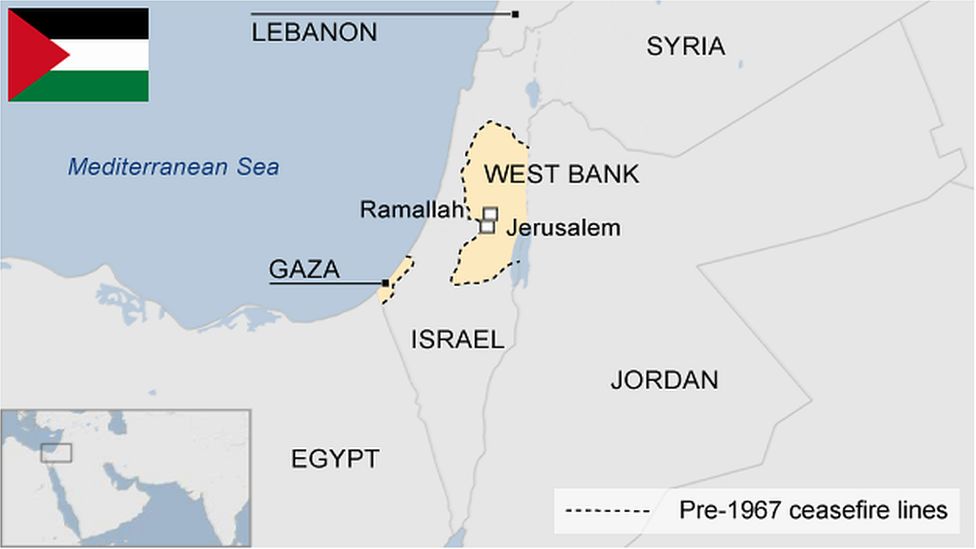Arshad Mahmood Awan
The failure to establish a Palestinian state despite the United Nations’ approval of a partition plan in 1947 is a complex issue with several underlying factors. One of the primary reasons for this failure is the Israeli government’s opposition to the establishment of a Palestinian state. Following Israel’s admission as a member of the UN in 1948, the Israeli government took control of the West Bank and Gaza Strip, making it difficult to establish a contiguous Palestinian state. The Israeli government has also built Jewish settlements in these territories, further complicating the situation.
Another significant factor contributing to the failure to establish a Palestinian state is the lack of support from major world powers. The United States has traditionally supported Israel and has vetoed several UN resolutions aimed at establishing a Palestinian state. Similarly, Germany, which has been singled out by Nicaragua as an ally of Israel in the war against the Palestinians, has been reluctant to support the establishment of a Palestinian state due to its historical responsibility for the Holocaust.
Furthermore, internal divisions among Palestinian political factions have also contributed to the failure to establish a Palestinian state. The Palestinian Liberation Organization (PLO) has been granted observer status in the UN for more than five decades but has lacked a legitimate position. The PLO’s failure to present a united front has weakened its position in negotiations with Israel and made it difficult to establish a viable Palestinian state.
Moreover, the Israeli government has used military force to suppress Palestinian resistance to the occupation of their land. This has led to the deaths of thousands of Palestinians, further fueling the conflict and making it difficult to establish a peaceful solution.
Finally, the ongoing conflict between Israelis and Palestinians has deep historical and religious roots, which have made it challenging to find a solution that satisfies both sides. The conflict has also been exacerbated by the lack of trust between the two sides, making it difficult to establish a viable peace agreement.
Accordingly, the failure to establish a Palestinian state is a multifaceted issue with several underlying factors. Unless these issues are addressed, the establishment of a viable Palestinian state remains a distant dream. Most importantly, it is critical to implement the international political order; for that purpose, the United Nations should play an imposing role. Israel has been the most challenging country regarding the credibility of the United Nations.
In 1947, the UN approved a plan to partition Palestine into two separate states: a Jewish state and an Arab state. However, it should be noted that the UN resolution also called for the protection of the rights of the Palestinian people, including their right to self-determination and the preservation of their cultural heritage.
In 1948, Israel was admitted as a member of the UN, but the Palestinian state was never established. This act of injustice led to Israel’s occupation of the West Bank and Gaza Strip, which continues to this day.
For more than five decades, the Palestinian Liberation Organization (PLO) was granted observer status in the UN but lacked a legitimate position. In recent years, there has been a growing movement among UN members to grant recognition to the state of Palestine. Several countries, including Britain, Ireland, Malta, Slovenia, Spain, Norway, and now Australia, have hinted at recognizing the Palestinian state.
However, this recognition is still pending before the UN Security Council, where we will likely veto it. This reflects a contradiction in the US’s stated position that there should be a two-state solution where Israel and Palestine will live side by side.
Meanwhile, Germany has been singled out by Nicaragua as an ally of Israel in the war against the Palestinians. Germany will not support granting Palestine full membership, as it cannot afford to antagonize Israel on the historical episode of the Holocaust of Jews during the Nazi regime. This position is groundless because, on the one hand, Germany is providing sophisticated weapons to Israel, exonerating Israel of genocide, and on the other hand, it is rejecting the recognition of an independent Palestinian state.
Granting recognition to Palestine as a state will weaken Israel’s position and give enormous legitimacy to Palestine. However, even if Palestine is granted recognition as a state, it will not make a significant difference due to the current situation on the ground. The West Bank is already littered with Jewish settlements protected by armed Israeli forces, reflecting an apartheid-type system. A future Palestinian state will not have complete control over the West Bank, and the West Bank and Gaza are not geographically connected because Israel is in between the two Palestinian territories. This reality will make Palestine a makeshift state with marginal viability and connectivity.
The support of the Muslim world is vital for transforming the dream of a Palestinian state into a reality. Unfortunately, the impotent role of the Muslim states in preventing Israeli genocide in Gaza and for an independent Palestinian state is a stark reality. When the Muslim world fails to prevent the Israeli genocide of Palestinians in Gaza and the occupied West Bank, how will they be able to support an independent Palestinian state actively? Therefore, the overwhelming support for a Palestinian state, barring the US and some Western allies, must be concrete and compel Israel to dismantle illegal Jewish settlements, stop the genocide of Palestinians, accept a permanent ceasefire, and allow the uninterrupted supply of food and medical facilities for the beleaguered population of Gaza.
Please, subscribe to the YouTube channel of republicpolicy.com

















































